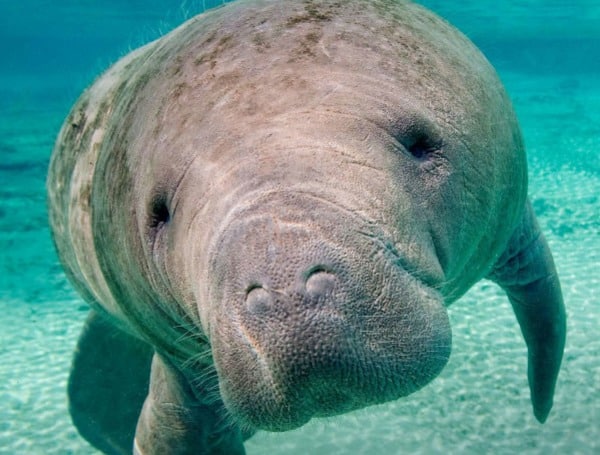November is Manatee Awareness Month, an important time for boaters to go slow and look out below to watch for manatees as they travel to warmer water sites around the state.
Manatees depend on water generally warmer than 68 degrees Fahrenheit to survive the winter, so in the fall they travel to Florida springs, power plant discharges and other warm-water sites.
While manatees are large, they can be difficult to see in the water. That is why it is important to: follow guidelines and follow all manatee protection zones; look out while boating; wear polarized glasses and always give them space. Manatee protection zones are marked by waterway signs and maps of manatee protection zones are available online at MyFWC.com/Manatee by clicking on “Data and Maps.”
In the news: Florida Doctor Facing 20 Years In Prison On Distribution Of Controlled Substances Charges
During the colder months, seasonal manatee zones require boaters to slow down in certain areas to prevent manatees from being injured or killed by motorboats or personal watercraft.
Boat strikes continue to be a major threat to Florida manatees. Florida Fish and Wildlife Conservation Commission (FWC) law enforcement officers are on patrol in state waters to inform boaters of the seasonal manatee speed zones and take appropriate enforcement actions. Boaters are reminded to abide by the regulatory signs they see on the water.
Remember, disturbing manatees at warm-water sites can cause them to swim out of protected areas and into potentially life-threatening cold water. Manatees are a protected species and it is illegal to feed, harass, disturb or harm them.
Physically handling a distressed or stranded manatee can cause more harm. Instead, report injured, distressed, sick or dead manatees to the FWC’s Wildlife Alert Hotline at 888-404-FWCC (3922) or by dialing #FWC or *FWC on a cellphone so trained responders can assist.
The FWC and the U.S. Fish and Wildlife Service continue to investigate and respond to an elevated number of manatee deaths along the Atlantic coast of Florida.
The FWC and USFWS take manatee conservation seriously by actively implementing science-based conservation measures that are making a difference for manatees and habitat. Learn more about how officials are responding to this event by visiting MyFWC.com/Manatee and clicking on “Learn More” in the banner at the top of the page.
Resources for boaters, educators and other interested members of the public are available at MyFWC.com/Manatee.
What should you do if you see a manatee?
The Viewing Guidelines page provides helpful tips on respectfully viewing manatees, additional guidelines for boat and personal watercraft operators, and information on what you can do to help these amazing aquatic mammals.
Are you interested in supporting the FWC’s manatee research, rescue and management efforts? You can purchase a Florida manatee license plate or donate $5 to receive a collectible FWC manatee decal. Both are available from your local Tax Collector’s office.
Visit Tampafp.com for Politics, Sports, and National Headlines. Support journalism by clicking here to our GiveSendGo or sign up for our free newsletter by clicking here.
Android Users, Click Here To Download The Free Press App And Never Miss A Story. Follow Us On Facebook Here Or Twitter Here.
Copyright 2022 The Free Press, LLC, tampafp.com. All rights reserved. This material may not be published, broadcast, rewritten, or redistributed.
